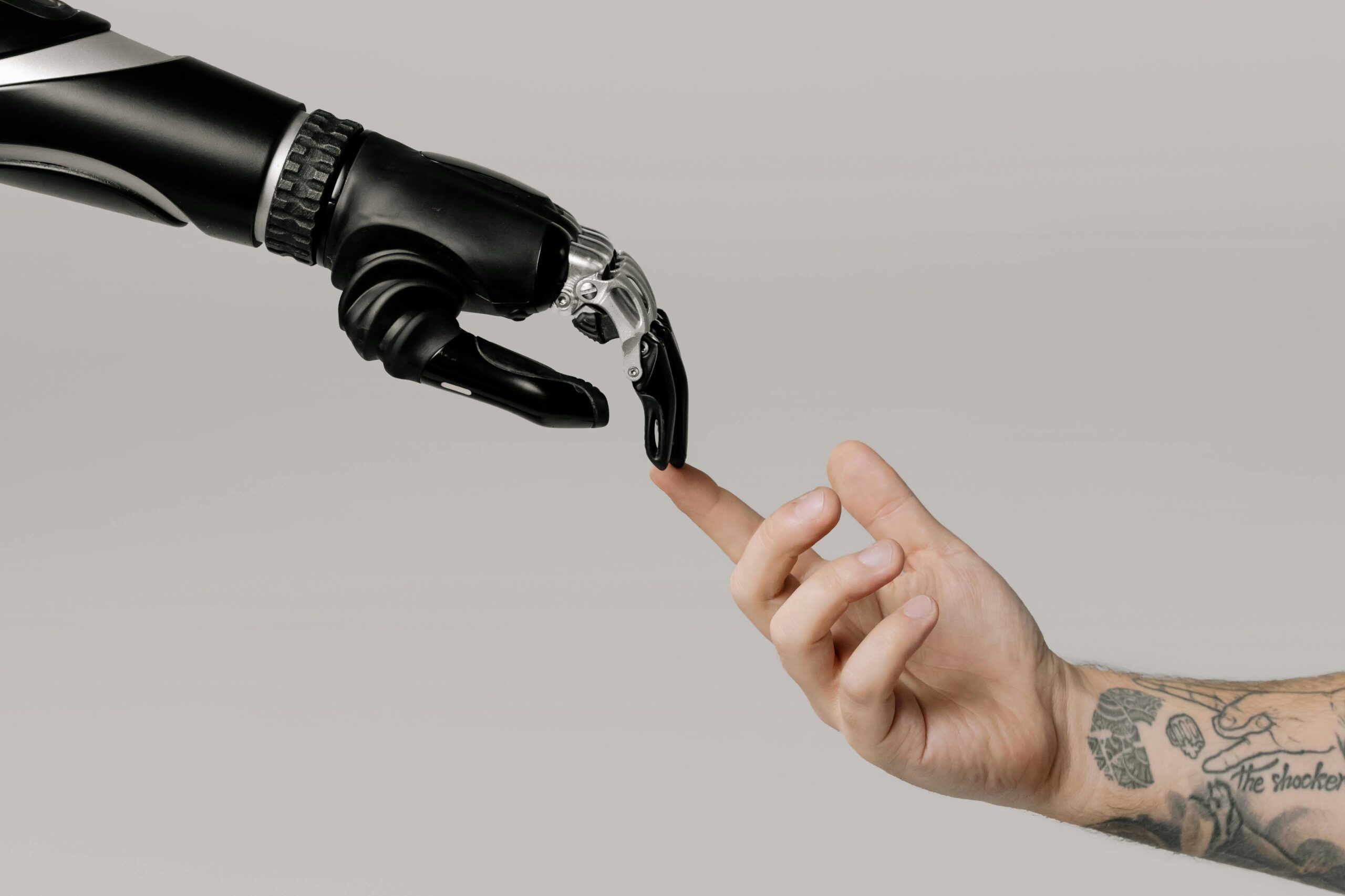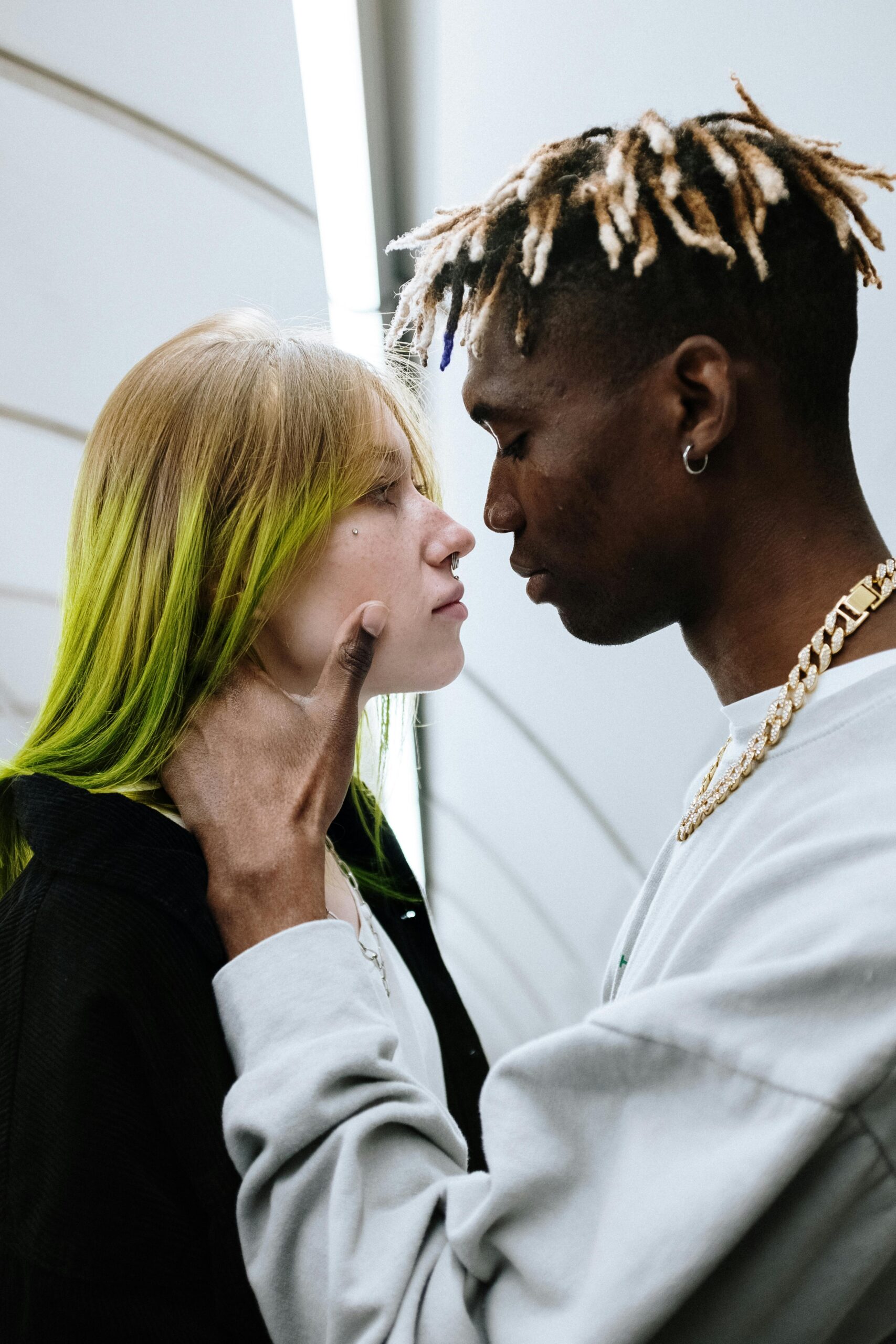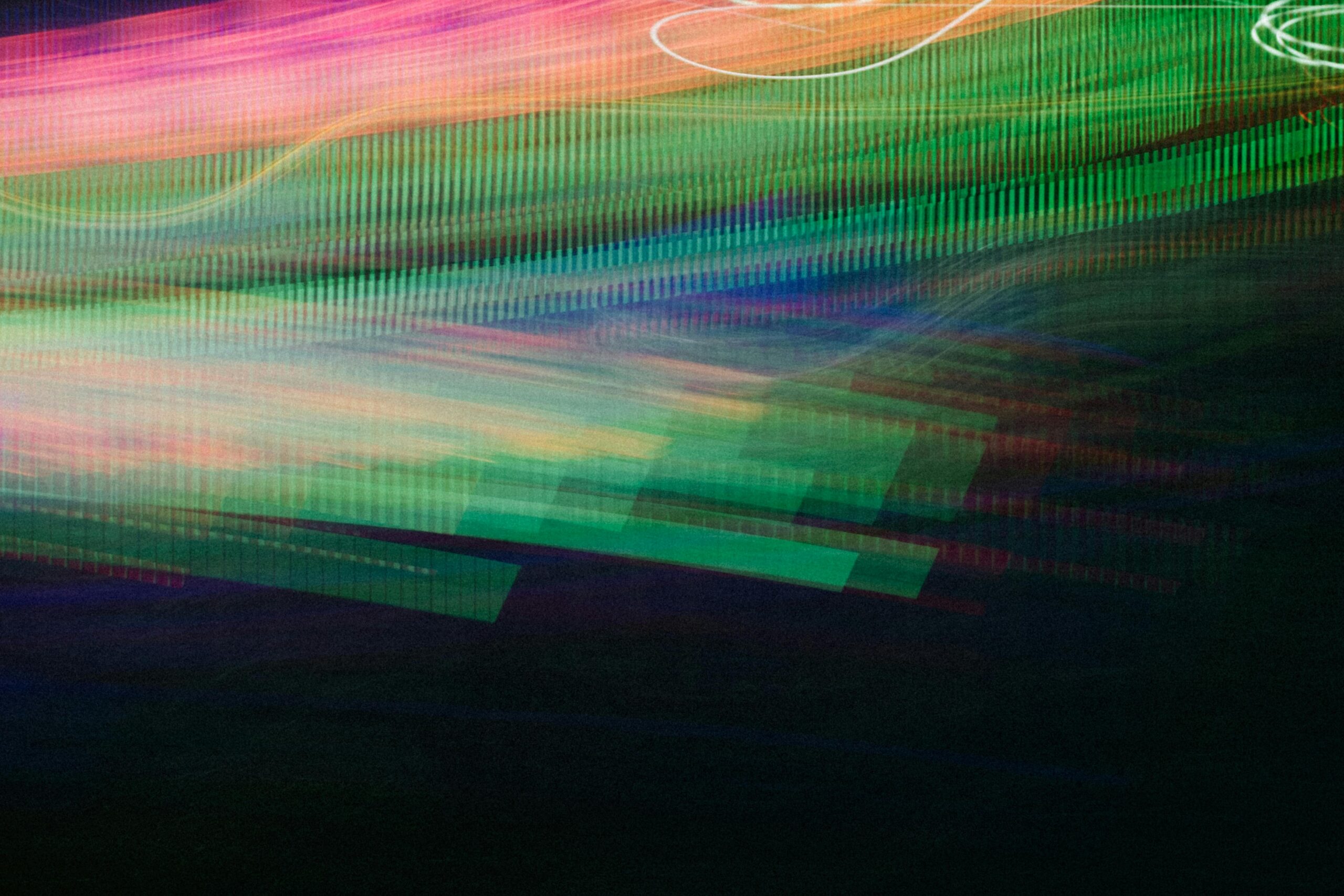A crossroads, creative revolution, and call to come together.
Something’s looming—have you sensed a shift?
“Change is the only constant.”
We hear it all the time. Throughout history, humans—all things—have undergone serious transformation. Every great creation follows a period of mass destruction.
So, sceptics might say there is nothing special about this era. I disagree.
Yes, when you look at the timeline of our planet, we haven’t been around for very long. When you consider dinosaurs roamed Earth for 164 million years, whereas Homo sapiens have only been around for 300,000 (i.e. not even 0.2% of that time) it’s easy to believe our existence is but a blip.
But let’s not confuse breadth for depth. Time may give us the value of perspective, but it does not say anything about magnitude.
No Earthly species, as far as we know, has ever transcended into space, conquered the animal kingdom (except dinosaurs), enabled universal and instantaneous communication, manipulated its own life quality and lifespan, harnessed new forms of energy, painted the Sistine Chapel and, now, deliberately designed another intelligence that places solving history’s greatest challenges—famine, war, disease—within reach.
While humans’ relatively short time on this planet may give us context of events, it doesn’t make those events any less significant.
In fact, if we extrapolate this sequence, and consider the crossroads we are at with technology, humans are about to be catapulted into an era of even more magnificent and chaotic events. Soon, we may wake up in a world we find unrecognisable, created at our very own hands.
When, in history, has any species experienced such power? If you ask me, this time—this precise moment we find ourselves in—is not just special, but monumental. Crucial.
What will we do with all that power? Will dramatic innovations translate into even greater expectations? Will we build a system, we ourselves, don’t understand? Will we re-engineer our minds and bodies, to the point where Homo sapiens disappear? Can we even pause to reflect, and give ourselves the grace to process what’s happening? Or will our economy simply collapse? What are our options?
If you’re frightened, that’s understandable. Me too. But recognise it is not the future we are afraid of—it’s ourselves. There’s a big black hole in our awareness and it’s got nothing to do with AI; it concerns our creative vision for humanity, our relationships with one another, and our values.
If our powers of creation and destruction are greater than ever, and if we use these powers to create more of what we want, destroying what we don’t, we must ask ourselves:
What do we want? Do our wants coincide?
And perhaps more importantly:
Will we choose life, even if it means betraying our own potentially-selfish, probably-short-sighted, wants? Can we hold each other through hard times, when choices clash and challenge us?
These are the questions I address in this article series, The Human Pickle.
Over the course of the next 5 articles, my aim is to make those more-important-than-ever connections between:
- Physical and conceptual evolutionary concepts,
- Optimistic, pessimistic and realistic outlooks,
- Past, present and future realities, as well as
- Universal, national and individual interests.
These are the golden threads we need to understand our part in it all; our daily choices and the meaning of them; our purpose.
The Native Americans speak of a place called Chui-ta-ka-ma; a place of ‘choiceless awareness’ where it is clear which choice is a choice for life, where we can make no other. I hope we can find this place.
Because, as the Dalai Lama, international leader for human rights and winner of the Nobel Peace Prize, said in his latest memoir, A Call For Revolution:
“The twenty-first century will be the century of peace, or humanity will cease to be.”
Join me, as I explore our options (or lack thereof) for the future of life on Earth, and beyond.
A few warnings.
And what I’m not here to do.
Some of the stories shared in this series are metaphorical, and many questions philosophical. Where this is the case, or where facts and figures have been left out of the narrative, such a choice is deliberate. Simplicity is key to understanding these significant concepts and, sometimes, too much data inhibits access (which is why we’re here).
That being said, all evidence and opinions shared are based on those of highly regarded subject matter experts. I’m here to collect and critically analyse their research and insights. My goal is not to teach, but rather to question what we know and have been taught. To prompt your own process of unlearning and relearning of the truth.
As an adult, you are responsible for your education.
I encourage you to seek this out thoughtfully, giving careful consideration to who’s speaking—and their agenda. On that note, it would be hypocritical of me not to disclose mine.
The reason I share my opinion is twofold: (1) I enjoy meaningful discovery and debate, and (2) I have no other option. Whether it’s my care for others, my curiosity over what’s coming, that place of ‘choiceless awareness’, the Native Americans speak of, or what I deem my ‘soul’s calling’, I am compelled to do this work. To dive down rabbit holes on your behalf and develop the knowledge network that enables us all to make better choices.
Every person on this planet has a voice (that’s coming from the shy girl in the corner, who’s only friend was the Grade 1 teacher!) Perhaps, if that girl can find and use hers, then others will remember the value of theirs, too.
May this insight serve as the ember that lights your fire, inspiring you to form an opinion of your own. And, if it does, please remember to let me know by commenting or reaching out via email, Instagram or LinkedIn.
First, a few distinctions.
Let’s start this series by getting on the same page.
Big conversations, about big concepts, rest on a shared understanding of foundational principles and definitions. Here are some important ones, referenced as they are in the Cambridge English Dictionary, and annotated the way I interpret them.
Knowledge
“Understanding of or information about a subject that you get by experience or study, either known by one person or by people generally”. AKA stuff we collect and store in our brains / books / computers, increasing our awareness, or not.
Awareness
“Knowledge that something exists, or understanding of a situation or subject at the present time based on information or experience”. AKA stuff we see, perceive and believe, often by making sense of knowledge.
Wisdom
“The ability to make good judgments based on what you have learned from your experience, or the knowledge and understanding that gives you this ability”. AKA how we apply that awareness or ‘sense-making’, with ethical consideration and discernment.
Fate
“What happens to a particular person or thing, especially something final or negative” and “a power some believe causes and controls all events”. AKA the outcome of our existence, seen as objective or predetermined; being at the mercy of creation and destruction.
Free will
“The ability to decide what to do independently of any outside influence”. AKA having control over things, including our existence; creating and destroying whatever we want, and not being subjected to fate.
Strategy
“Plans for achieving success” or “the design of actions over time to improve one’s position and achieve what you want”. AKA a map for moving toward a goal or defined direction; a set of intentions to get us closer to a vision.
Actions
“The process of doing something, especially when dealing with a problem”. AKA things we do that generate movement (either towards or away from our goals); how we deliver on our vision, strategy and intentions.
(Creative) vision
“An idea or mental image” and “the ability to imagine how a country, society, industry, etc. could develop in the future”. AKA the goal or direction itself, experienced through our senses (e.g. seen, heard, felt); ever-evolving and not static.
Values
“The principles that help you to decide what is right and wrong” and “beliefs about what is important in life”. AKA the wants and needs underpinning that vision; people’s true desires; what guides behaviour.
Knowing these concepts will help you follow my train of logic and ensure we stay on the same page. If, at any point, you feel lost because of phrases you don’t understand, I encourage you to revisit the definitions above, or reach out via email.
The inflexion point, and ‘the human pickle’.
What’s changing—and how has ‘change’ changed?
The biggest change humanity is experiencing is a change in our agenda.
In Homo Deus, critically-acclaimed historian, Yuval Noah Harari, explains how famine, war and plague have always demanded our attention. And that, while these issues are by no means resolved, “success”, i.e. freedom from this biological suffering, is—for the first time—within reach.
A new intelligence is here.
Already, it has the ability to analyse information, make optimal decisions, allocate resources, predict outcomes, and measure impact better and faster than we ever could. More and more, it generates solutions before we’re even aware of the problem. The Ultimate Over-Deliverer, AI doesn’t just create the vision we want, but one our imaginations can’t grasp.
What does this mean for our future? Since we’re no longer as limited by our humanness, and AI is being developed out of our own free will, do we have more control than ever? Or is this power merely an illusion, and are we now subject to an even greater force determining our fate?
To answer these questions, we need to understand our role, as creators. Not just in the creation of AI, but in all of evolution. In life itself. How much of it is up to us? What can we control within nature’s bounds? Where do those boundaries start and end?
Depending on who you ask, the answer to this question falls on a spectrum, from “We control nothing, we are at the mercy of nature / God / the Universe” to “Everything, there is nothing we can’t do”. So, let’s look at some of the things humans have been able to accomplish, noting the compounding effect of our creative efforts.
Communication
Today, humans have the power to send and receive any message, across almost any space and time. A message that took weeks to deliver by horse-drawn carriage in the 1800s, from one destination to another, now reaches the entire world in milliseconds, via the internet. The time it took to evolve from A to B? Just over 200 years.
Transportation
Today, humans have the power to travel almost anywhere, across space and time, within the realm of our planet. Sailing across the Atlantic by ship, for months, in the 1800s, now takes an aeroplane a few hours. Time frame? Just over 200 years.
Health
Today, humans have the power to fertilise multiple eggs, select the desired embryos, edit their genes and, essentially, design superhuman versions of ourselves. Penicillin, the first antibiotic and way of treating bacterial infection, wasn’t even discovered until the 20th century. Time frame? Under 100 years.
Information
Today, humans have the power to access almost any information, anywhere, anytime. Mid-20th century, we still had room-sized computers only a select few had access to whereas, these days, the world’s knowledge is held in any person’s smartphone. Time frame? Approximately 80 years.
Environment
Today, humans have the power to influence our surroundings, on a local and global scale. Major changes in Earth’s climate used to occur over multiple millennia, like the formation of the Sahara desert, which took over 5,000 years. The dramatic changes we see in the Arctic today, including significant melting of sea ice, has only occurred in the last 40 years.
Culture
Today, humans have the power to take on new values, attitudes, beliefs, perceptions and identities—reinventing themselves, their realities, and others’—in a fraction of the time it took previous cultures to adapt. The spreading of Latin across the Roman Empire occurred over 1,000 years as it transformed into French, Italian, Spanish, Portuguese, etc. English has dominated the world in less than a century and, thanks to social media, new phrases are now adopted within weeks.
So, to answer the question, “How big a role do humans play in creation?”, it’s hard to deny our contribution is pretty massive. We hold a significant degree of influence over our existence, are active participants in our own evolution, and our powers are getting exponentially stronger.
Our role in evolution, and the real challenge.
Hint: it’s got nothing to do with AI.
When people say, things are “up to nature”, I often wonder what they mean.
Any separation is but a limitation of our perception. We are nature. Nature acts through us and with us. And considering nature as ‘other’ is either something we’ve been taught to do, due to language, or it’s a coping mechanism for dealing with the overwhelming responsibility it takes to admit that we are creators of this world, with all its good and bad.
There is no ‘us versus nature’, no ‘fight for the planet’. There is only ‘us versus us’, and a fight against ourselves. Any existing conflict is a choice, an illusion. Because of this, sustainability is not humanity’s greatest challenge, peace is.
Recognising this adds a significant degree of urgency to my next question:
With more power, and less problems, what will we do with it? If we manage to control famine, disease and war, what will be our next quests?
More power, less problems?
The double-edged sword of evolution.
Those with less problems and high levels of power have already begun quests of their own. For decades, humans have been experimenting with manipulating time (e.g. reversing ageing) and exploring new spaces (e.g. conquering Mars). Only, now, our abilities are far more sophisticated.
Will we all have a chance to play ‘God’? Or does our future lie in the hands of a few?
As thrilling as our latest interests seem, “One central project [of the 21st Century] will be to protect people and the planet as a whole from dangers inherent in our own power”, says Harari. What’s more, in the game of life, where it’s traditionally been ‘us’ and ‘nature’, we now have a new player: AI, The Ultimate Over-Deliverer.
So far, this player seems to be on our team, but we’re still figuring out whether it has its own agenda. Perhaps our destiny won’t be determined by fate (nature) or free will (us) at all, but rather by AI (which one is it?) If we assume zero difference, these are the same. So, as long as we program AI for peace, we’ll be safe, right?
Part 2 of this series examines how AI came to be, in particular, the endless pursuit of knowledge that fuels it, and what this obsession actually does for us. We consider how knowledge translates into action, questioning:
How are we using what we know?
And, even more importantly:
Is knowledge serving us, or have we become slaves to knowledge?
Read part 2 of The Human Pickle to find out how you’re being served or enslaved by our current system.
An invitation to use your voice.
Prove me wrong, share your perspective.
Meaningful change rests on healthy challenges. So, I invite you to form your own argument. Let’s make this a safe space for critical thinking and questioning. The more diverse a conversation, the stronger our species representation, and the better we can design a future we all love.




Comments +